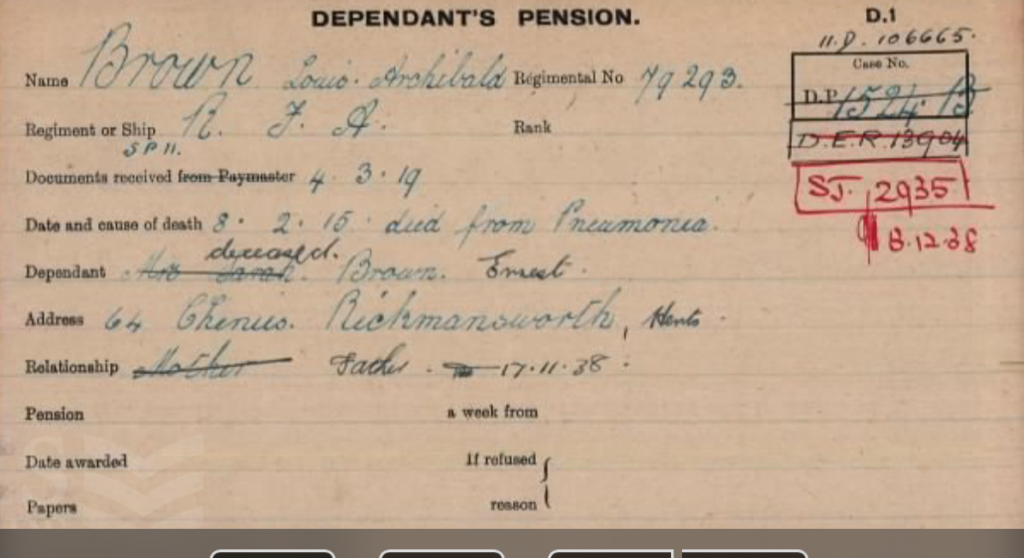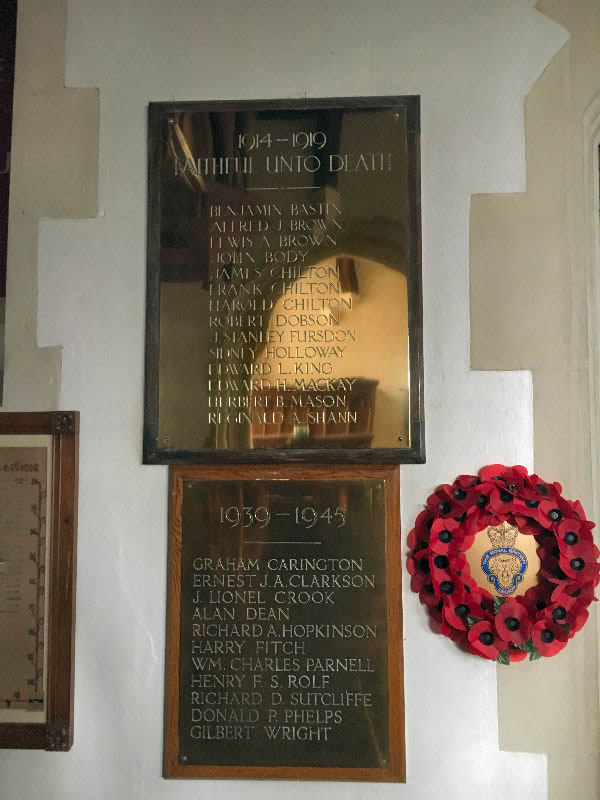Lewis was a young artilleryman who signed up to fight in World War One. He unfortunately died during training of pneumonia, and is buried at the Baptist Church. His headstone was inscribe incorrectly, stating his age as 17, however he actually died on the eve of his birthday and was only 16. This news article tells the story. He is honoured among the roll at the Baptist Church along with his cousin Robert, who identified his body and died in 1917 two years later, and his brother Alfred, who also died in 1918.
YOUNG ARTILLERYMAN’S DEATH AT BORDEN.
The County Coroner held an inquest at the Military Hospital, Borden, on Wednesday, on the body of a young artilleryman named Louis Archibald Brown who died suddenly on the eve of his 17th birthday on Monday evening. Mr. J. Baifry was chosen foreman of the jury.
-Gunner Robert Henry Dobson, R.F.A., identified the body as that of his cousin, who was a driver in the same corps, the 15th Divisional Ammunition Corps, R.F.A. Deceased had been complaining of a cold, but otherwise seemed quite well. On Monday afternoon he was taken ill on parade and fainted.
He was at once taken by two men to his quarters. Witnesses saw him again several times before he died at his quarters on the same evening. He did not seem to be seriously ill, but at 7.30 p.m.
Sergt, Hirst was sent for as be did not seem to get any better. Deceased would have been 17 years of age on the following day. Sergt. Henry Hirst stated that be was on parade when deceased fainted, and he was at once sent home.
He was called at 7.30 p.m. and gave deceased some Oro, and he seemed to revive. Witness did not think he was so bad as he must have been. He was sent for again at 9 o’clock, when deceased was in a very bad condition and he sent for a doctor.
Before the doctor arrived, however, Brown had died. He had never complained to witness, and he was a very nice, steady young man.
Deceased had some bottles of linment among his possessions. Driver George Oakes stated that deceased had complained for about a week of colds. He kept taking cough mixture, which he got from the druggist. On Thursday he said he would speak to the doctor on the following day and go sick. but on the Friday he said he felt a bit easier. and did not carry out his intention, but went on with his work. Lieut. Oswald Arnold Gee, R.A.M.C., stated that he was called to the deceased on Monday night. It was not his duty to attend them, but he was summoned as being the nearest doctor.
He found that death had already taken place. As the result of a post mortem examination made that day he found death to have resulted from acute pneumonia which had produced heart failure. The body was very well nourished, and there were no marks of violence.
It was a case where deceased should have reported and have received treatment. Witness did not think the mixtures deceased had taken had in any way affected him. The jury returned a verdict in accordance mith the medical exidence.—Capt. William Stanford, of deceased’s corps, attended the inquiry.




